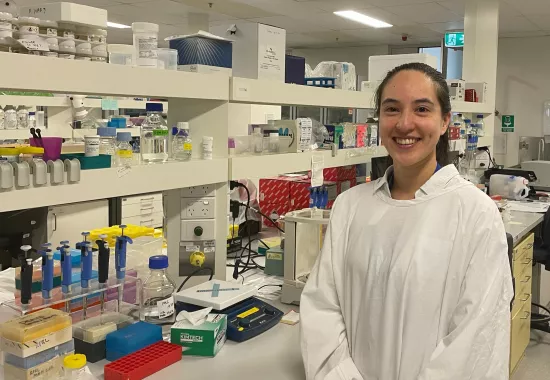With an increasing focus on our research activity, the Royal North Shore Hospital Scientific Staff Council is keen to celebrate the efforts of some of our emerging leaders.
It has presented four awards recognising an outstanding commitment to research excellence.
Kolling Institute musculoskeletal researchers Dylan Ashton and Dr Carina Blaker were joint winners of the best publication award for their paper which identified new tendon allograft options for knee injuries.
Carina also took out the outstanding early to mid-career researcher award in the basic science category, while fellow Kolling researcher Associate Professor Rebecca Kozor clinched the outstanding clinical researcher award for her work using high resolution imaging to help diagnose and treat heart disease.
Dr Katherine Bates received the outstanding research student award for her work on the identification of new biomarkers and risk factors for heart disease.
Chair of the Scientific Staff Council Dr Sumit Sahni said he was pleased to be able to present the awards to this impressive group.
“A huge amount of important work goes on behind the scenes,” he said.
“Many of our researchers are quietly making crucial progress with their research, and it’s wonderful to be able to recognise their remarkable efforts extending our understanding of particular conditions and lifting the standard of care we all receive.
“The quality of nominations we received was particularly high, making the decisions difficult and highlighting the expertise we have on the Royal North Shore Hospital campus.”
Carina welcomed the announcement.
“I was really honoured to receive the award recognising our research and I’m very grateful to the Scientific Staff Council for their ongoing support,” she said.
“Our research is aimed at broadening our understanding of different tissues so that we can personalise treatment options.
“We are increasingly seeing that a tailored approach will deliver a better individual fit and a better outcome for patients.
“I hope this award helps to draw attention to the steady progress we’re making in this field.”
